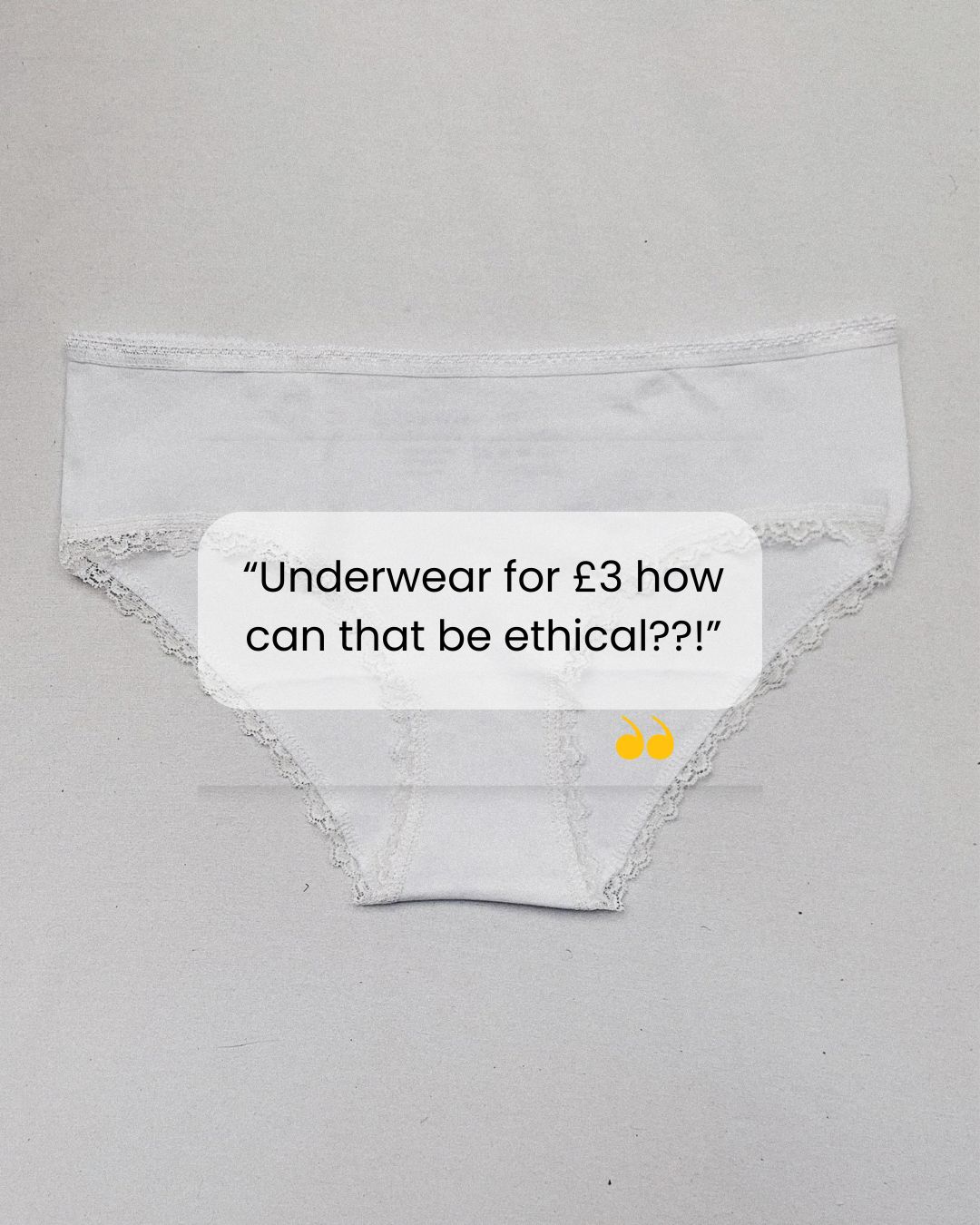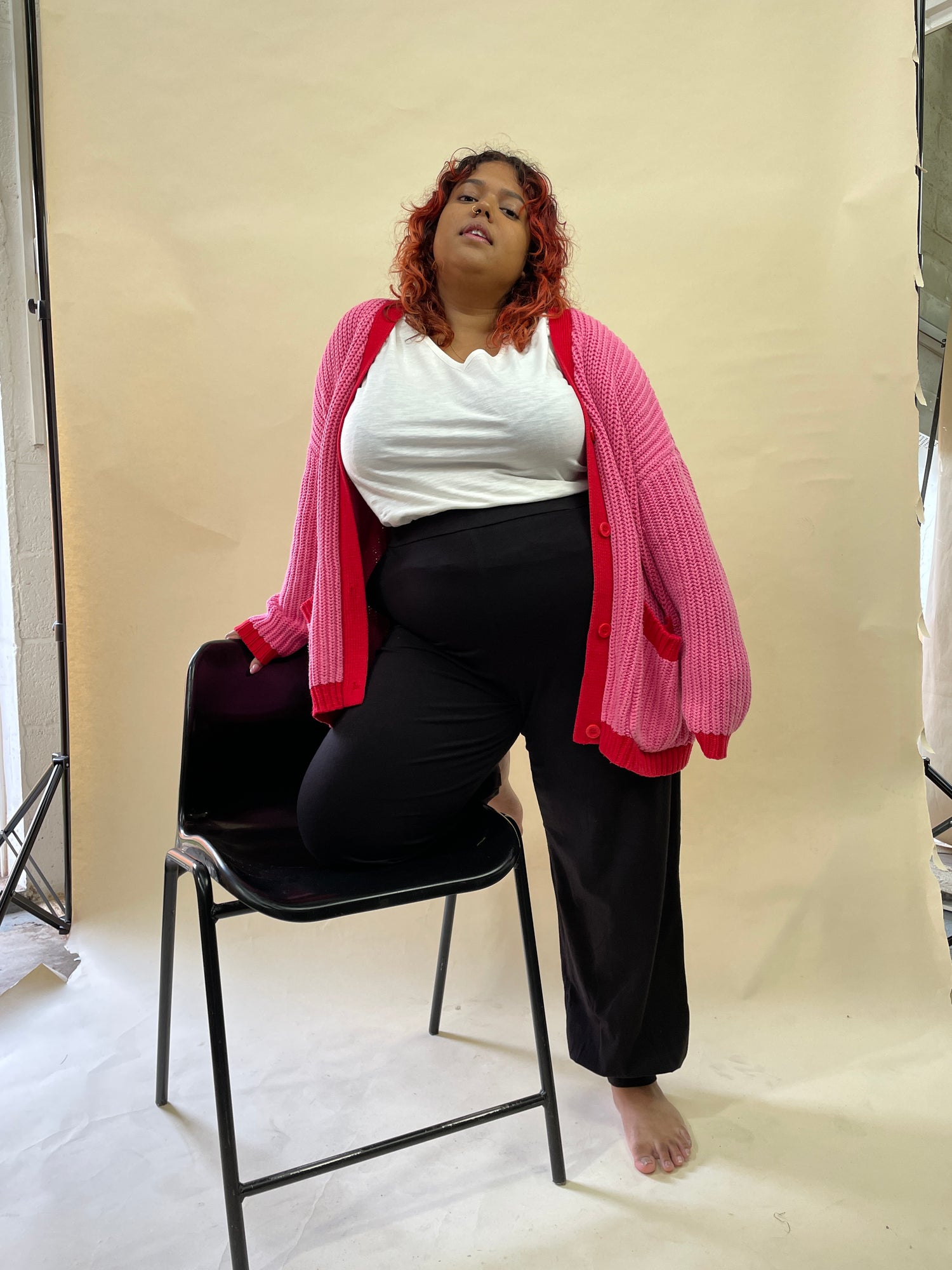Sancho’s is the home of sustainable fashion and ethical lifestyle products. Our Black woman owned business is based in Exeter, UK where we believe in doing better, providing sustainable and affordable clothing options. Through activism and spreading awareness, we are working towards a kinder world. Shop our Transparent Pricing collection here, our Organic Cotton Lounge Wear Collection here and read more About Us here.
With recent research showing that the fashion industry produces 10% of global CO2 emissions annually, consumers are beginning to shop more consciously and truly think about who they’re buying from, and where their clothes have come from. Environmental awareness is something that has gained huge momentum over recent years, and brands are catching on to this. Whilst many companies are truly tackling sustainability by attempting to make their brand and products as eco-friendly as possible, many companies are taking advantage of the popularity of sustainability, and are demonstrating performative efforts to be sustainable and eco-friendly through social media campaigns and advertising. This is more commonly referred to as ‘greenwashing’.
What does ‘greenwashing’ mean?
‘Greenwashing’ is a marketing and PR technique that is designed to make people and consumers believe that a company is more environmentally friendly and sustainable than it really is. It is described by Medium.com as “spending more time and money claiming to be green through advertising and marketing rather than actually implementing business practises that minimize environmental impact.” With smaller brands and companies, greenwashing can occasionally be unintentional due to a lack of knowledge and research surrounding what sustainability truly is. This could be in the form of social media posts and advertising that promote sustainability, without fully putting these practices into place. However, with big companies and corporations, this greenwashing tends to be intentional, with fast fashion brands creating ‘sustainable’ ranges without changing a majority of their unsustainable practices, or big global companies raising awareness of the small steps they are taking to be sustainable (e.g. packaging, eco-friendly advances in the office or workplace), but refusing to change larger more environmentally harmful practices such as CO2 emissions, excessive waste and landfill, as well as destroying the eco-system for the profit of the company.
With numerous scientists bringing attention to the impacts of global warming on our planet, many people are attempting to have more sustainable and eco-friendly lifestyles, and are also attempting to shop more sustainably. As a result, being eco-friendly and sustainable has become ‘trendy,’ with many fashion brands taking advantage of this growth in the eco-friendly movement. By creating ‘eco-friendly’ and sustainable ranges, it seems that the brands are paying attention to the importance of improving the sustainability of their practices. However, by producing more products (even if they are sustainably made), but avoiding to make the rest of their products eco-friendly, brands aren’t improving their sustainability, and are instead adding to the issue of mass-production and greenwashing.
What does a ‘greenwashed’ campaign look like?
The keywords that tend to be used by brands in greenwashed campaigns include ‘sustainability,’ ‘conscious’ and ‘eco-friendly’. These will claim to use sustainable materials such as ‘organic cotton’, recycled materials or sustainably sourced materials. At first, a consumer who is attempting to be more eco-friendly will jump at the opportunity to shop and be more sustainable whilst doing so. However, unless the brand creating an ‘eco-friendly range’ takes active steps to improve the sustainability of their other products, and the way in which their products are made, then there really is no development being made. The brand comes across better as they seem to be aware and eco-friendly, but it’s really just a marketing technique that plays into the current importance and popularity of sustainability.
Some of the fashion brands who are responsible for ‘greenwashing’ include Primark and H&M. Recently, Primark released a ‘Primark Cares’ label to attach to clothing that was made using ‘sustainable cotton’. However, many consumers were quick to question this new range with one twitter user asking ‘how can £13 jeans be sustainable?’. Forbes write that this ‘scheme’ created by Primark, is a three-year training scheme for farmers which helps devise responsible cotton growth. Whilst this is advantageous for cotton farmers, the ‘sustainable’ cotton that Primark uses is not organic. Organic cotton would replace all chemicals with natural or synthetic alternatives. Instead, Primark’s cotton still uses chemicals and as a result, still harms the environment and the garment workers who dye and create these clothes. Ultimately, whilst the materials they use may have been produced using sustainable sources, the process of creating and dyeing the clothing is still incredibly harmful towards the environment.
Whilst the awareness and step towards sustainability shown here by Primark is a step in the right direction, more needs to be done to improve the sustainability of a majority, if not all of their clothing, as well as improving the sustainability of their practices and suppliers.
What can we do to avoid ‘greenwashing’?
If a brand is producing and overly marketing the release of a ‘green’ or ‘eco-friendly’ range, then this is a red flag. Unless the brand is changing the sustainability of all of their products, then they aren’t truly eco-friendly.
To make sure that you’re shopping sustainably, research the brand and see how transparent they are about their practices. Many sustainable brands are very transparent and honest about the journey that their clothing takes, from production to consumer. One of the most popular brands, that are stocked at Sancho’s, who are making huge steps in the development of the fashion industry’s sustainability, are Girlfriend Collective. Creating endurable and sustainable activewear using recycled materials, Girlfriend Collective are a sustainable brand who are really committed to improving the sustainability and the environmental impact of the fashion industry.
So, don’t fall victim to fast fashion brands’ ‘eco-friendly’ ranges and ‘greenwashing’ campaigns. Instead, consider which brands are truly sustainable, and encourage fast fashion brands to change their practices and be more eco-friendly for good.
Fashion brands aren't the only companies who are 'greenwashing' their practices, many other companies are using sustainability as a buzz word that doesn't represent the ethos of the company, so question the brands and do a little research before you buy.
Shop Girlfriend Collective at Sancho’s here.
Shop New In at Sancho’s here.
Our email subscribers receive early access to new products and exclusive discounts. We only send out two emails a week. Plus, you can opt out easily at any time. To keep up to date on everything Sancho’s and sustainable fashion sign up here.
Written by Megan Finch



